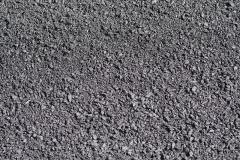Asphalt
| Infobox on Asphalt | |
|---|---|
| Example of Asphalt |  |
| Facts | |
| Origin | See text |
| Density (in t/m3) |
|
| Temperature (in oC) | - |
| Humidity / moisture | - |
| Ventilation | - |
| Self-heating / spontaneous combustion | - |
| Risk factors | - |
Asphalt
Contents
Description
The terms ‘Asphalt’ and ‘Bitumen’ are frequently interchangeable. A common shipping name is also Tar.
Dark brown to black solid or semi-solid. Bituminous substance produced in the refining of petroleum.
Occurs naturally or by distillation of crude oil (Bitumen).
Drums to be stowed in upright position to minimize the threat of leakage. Plastic sheets should be
placed on the floor and along lower part of the container walls to contain any leakage. If leakage
occurs it will seriously contaminate the container, requiring careful and expensive cleaning.
Petroleum products obtained from crude oil refining. May be shipped in closed or open-headed metal drums, fibre drums or plastic bags, also in specially designed containers and bulk tankers.
Drums should be stowed on end and not over or under other cargo, or near to sensitive cargoes. There are a wide range of melting points, some very low. Suitability of packaging is important, especially when shipments pass through the tropics. Liable to leakage in drums, in which event considerable expense may occur in discharge and subsequent handling.
When involved in a fire, the products under this category evolve toxic fumes; in enclosed cargo spaces the fumes may form an explosive mixture with air.
Lake Asphalt is a naturally occurring blend of bitumen and fine aggregate. It is shipped inn fibre drums and is hard with a high melting point.
Cutback Asphalts (bitumen emulsions) are blends or bitumens dispersed in water. They should be protected against frost.
Reference is made to the relevant IMO regulations of hazardous cargo.
Full information on this product is in the process of completion.











